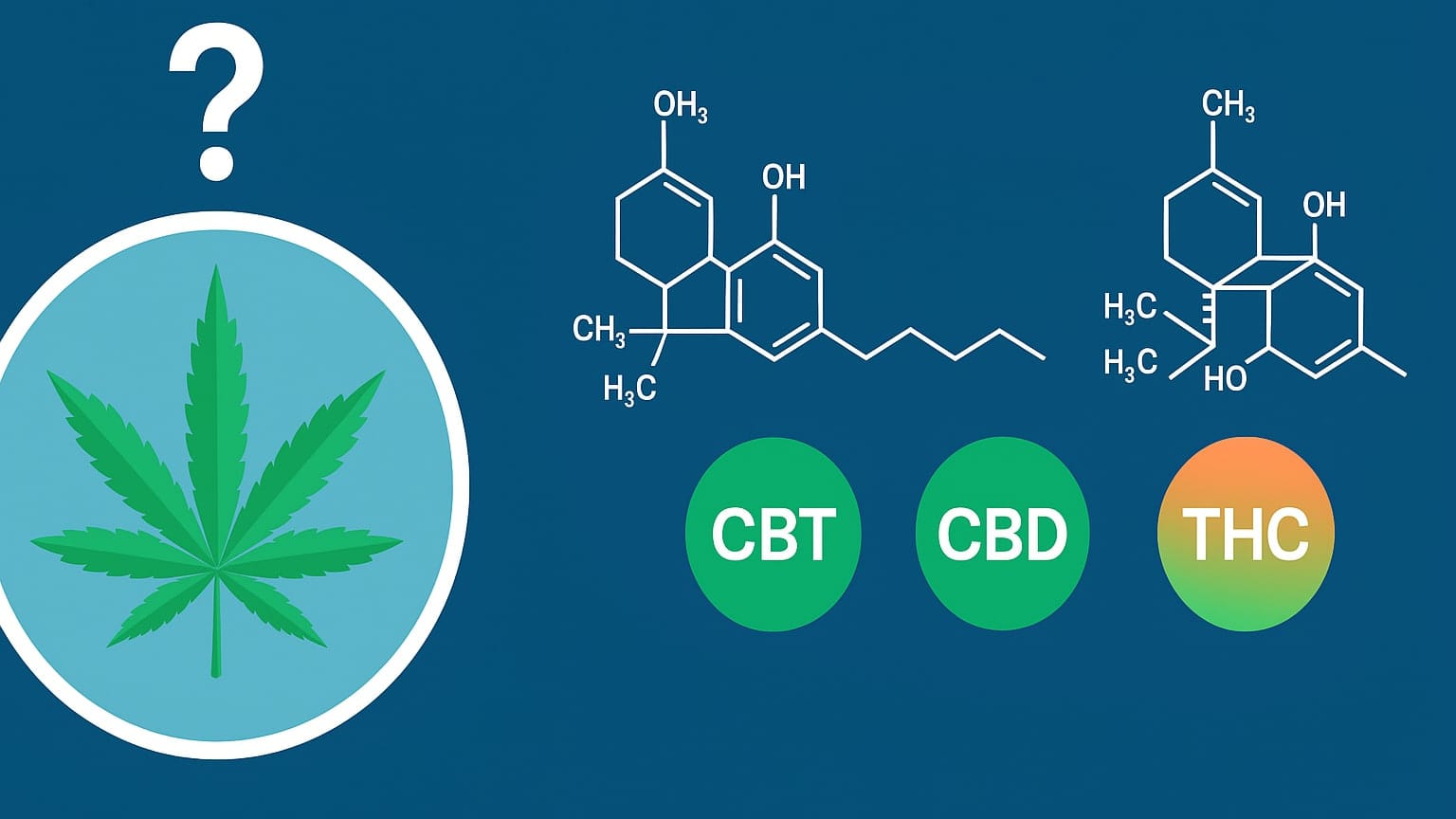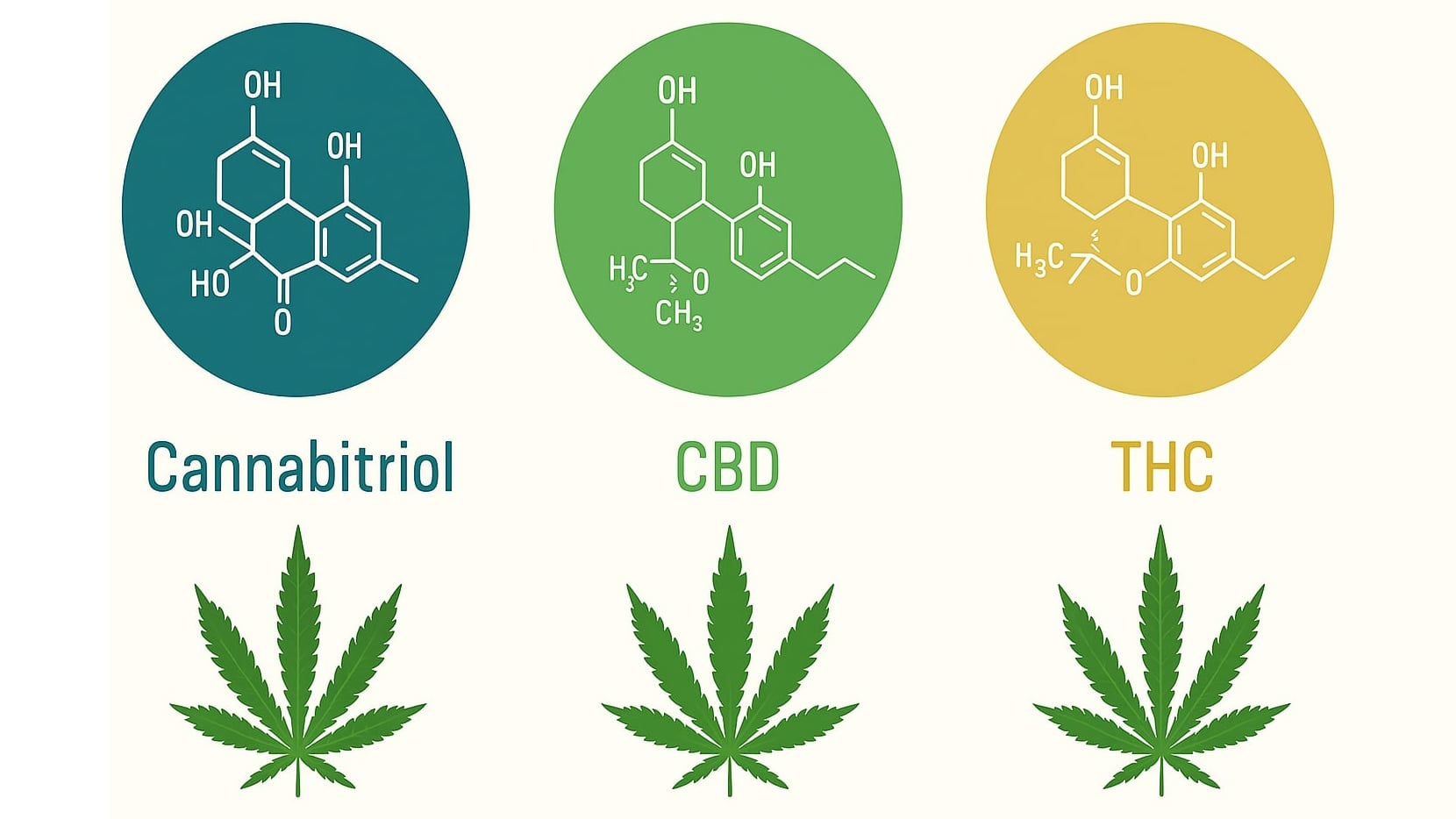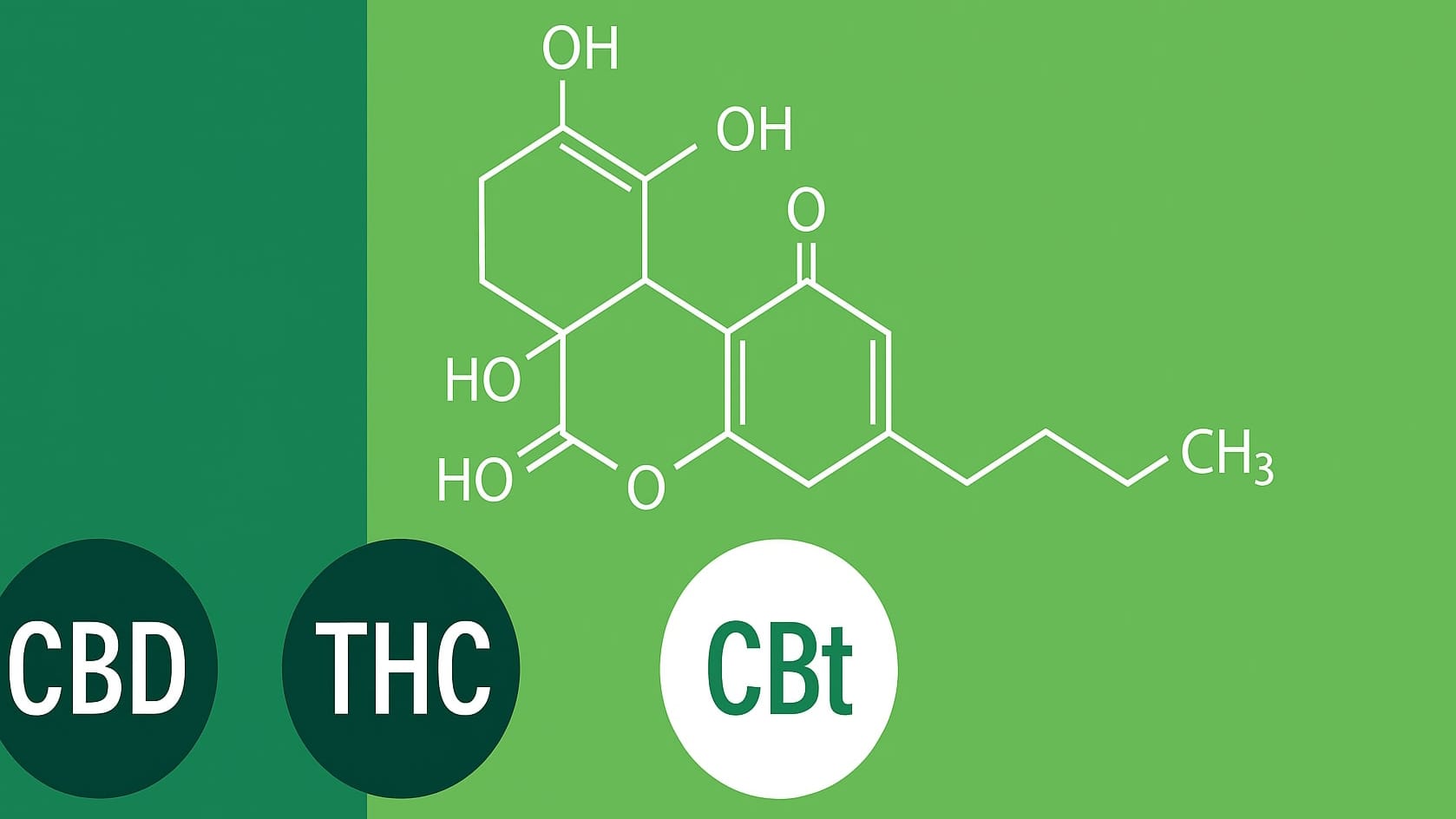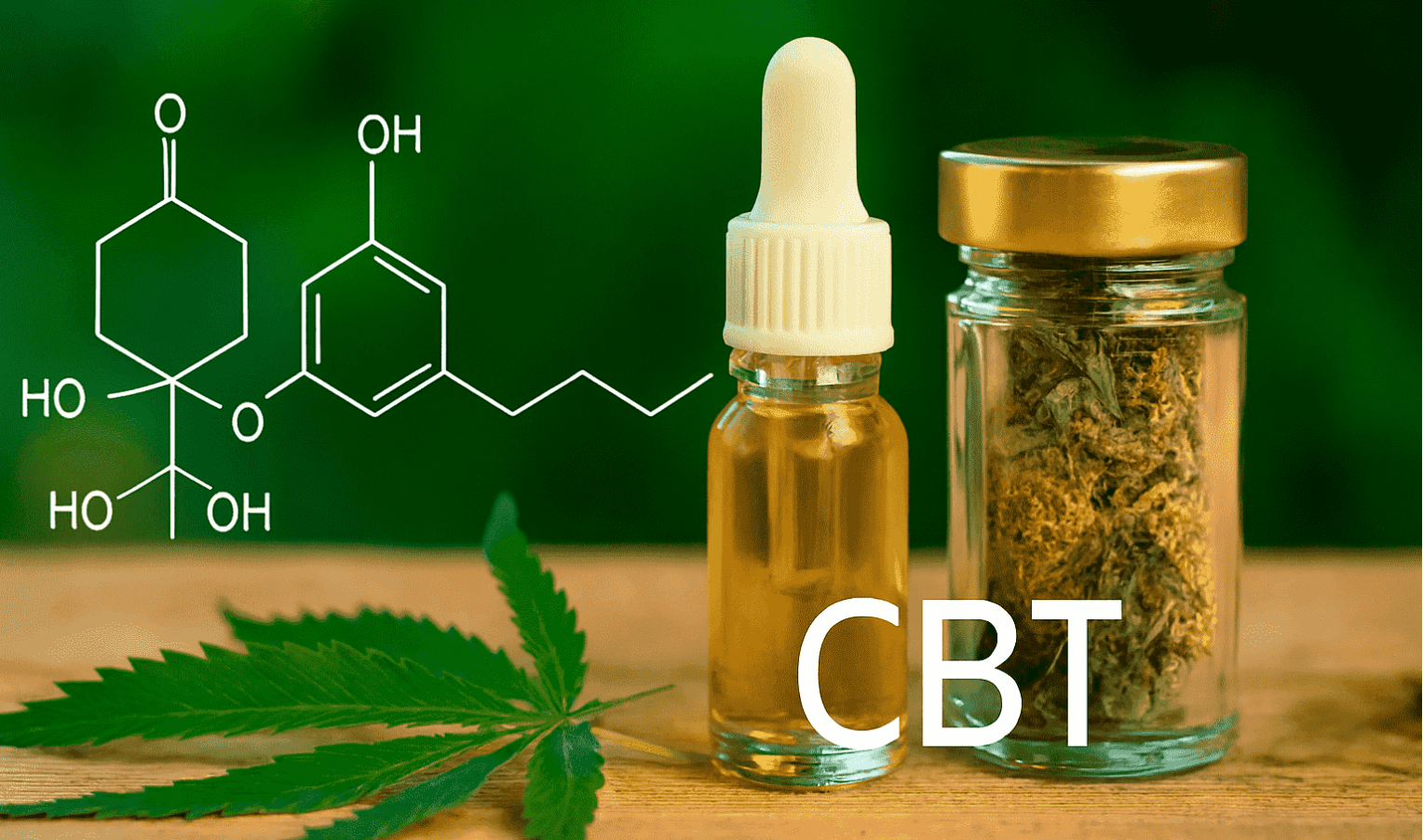Contents
- Basic information about cannabitriol
- Cannabitriol vs CBD and THC
- Benefits, safety, and prospects for the use of CBT
Basic information about cannabitriol
Cannabitriol (CBT) is one of the rare cannabinoids present in the cannabis plant. Unlike more well-known compounds such as CBD and THC, CBT has a unique chemical structure and a mild effect on the human endocannabinoid system. Scientists note that cannabitriol's properties include not psychoactive relaxation, but rather the ability to regulate certain physiological processes, such as inflammation and hormonal balance.
CBT is found in small amounts in the plant, which makes the process of extracting it more difficult. Nevertheless, modern methods of cannabitriol isolation and research allow for a deeper study of this cannabinoid. Scientists also consider CBT to be a metabolite of THC — this means that when the psychoactive component decomposes, cannabitriol is formed, which can mitigate the effect of THC.
Interestingly, knowledge about CBT raises new questions for growers. For example, the question arises: “Can the percentage of THC be controlled during cultivation?” Research shows that proper management of growing conditions and plant lighting can indirectly affect the balance of cannabinoids, including CBT and THC.

Cannabitriol vs CBD and THC
When comparing cannabitriol to more well-known cannabinoids, it is important to understand that each one has a unique effect on the body. Cannabitriol vs. CBD and Cannabitriol vs. THC show that CBT has its own characteristics and advantages.
CBT vs CBD
- Neither cannabinoid causes a strong psychoactive effect.
- The effect of CBT may be more focused on regulating enzymes and hormonal processes, including influencing aromatase and anti-estrogen mechanisms.
- CBD is more often studied as an anti-inflammatory and sedative, while CBT is a promising subject of cannabitriol science.
CBT vs THC
- THC causes euphoria and changes in consciousness, while CBT has a milder effect and can mitigate the psychoactive component.
- The benefits of cannabitriol include reducing anxiety, rapid heartbeat, and other side effects of THC.
- CBT may act as a regulator of other cannabinoid activity, making it interesting for research into complex effects.
Features of structure and isomers
- CBT has several forms—isomers of cannabitriol—and changes in the structure of CBT affect its biological activity.
- This opens up opportunities for isolating specific forms and creating specialized products.
The effect of cannabis on the brain
- Studies of CBT show that it has a mild effect on CNS receptors without causing psychoactive intoxication like THC.
- When combined with other cannabinoids, CBT can modulate effects and improve the balance of chemical processes in the brain.
Thus, comparing cannabitriol with CBD and THC helps to understand its unique role and reveals its potential for medical and scientific research. CBT in the cannabis plant is becoming a key element in future therapeutic and groving solutions.

Benefits, safety, and prospects for the use of CBT
The benefits of CBT are being studied more and more by scientists, and the first results show interesting possibilities for health. Cannabitriol can have a mild anti-inflammatory and antioxidant effect, as well as help with hormone regulation thanks to its anti-estrogen properties. This makes CBT a promising tool in therapy without the psychoactive effect that THC has.
The question of safety is always relevant for new cannabinoids. CBT's safety is confirmed by current research—side effects are minimal, especially compared to THC. The side effects of cannabitriol are limited to mild drowsiness or short-term dry mouth, making it comfortable for use in therapeutic products.
Scientists are actively studying CBT in combination with other cannabinoids, such as CBD and CBG. By the way, many people are interested in the question: “What is CBG?” It is cannabigerol, the precursor to most cannabinoids, including THC and CBD. When combined with CBT, CBG can enhance the therapeutic effect and expand the range of beneficial properties of the plant.
In addition, cannabitriol isolation methods and technologies used to obtain CBT allow for the creation of purer products, control of cannabinoid concentration, and improvement of their stability. This opens up new horizons for medicine and cosmetology, as well as for scientific research on CBT and cannabitriol science in general.

Attention! Errors Seeds does not encourage you to grow cannabis and does not assist in any way with this activity. Growing cannabis is prohibited by Ukrainian law. This article is for scientific and informational purposes only.

Write a comment